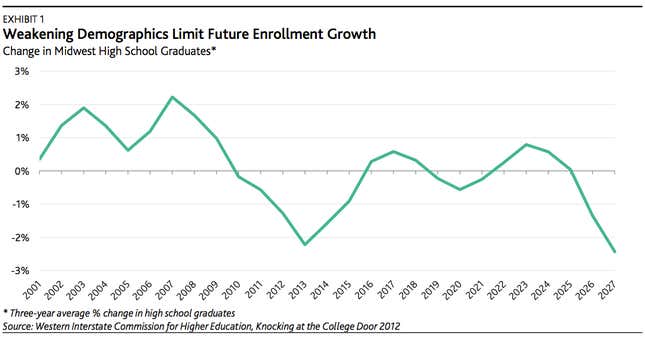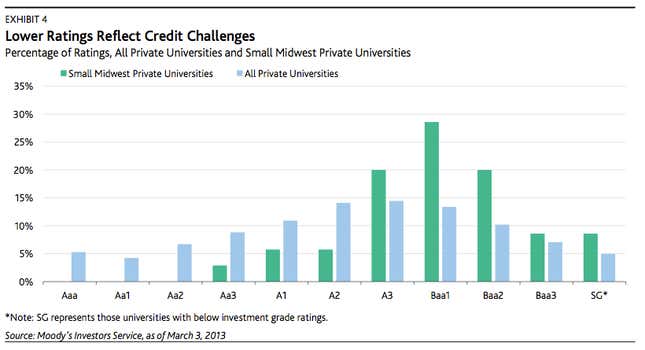A report this week from credit rating agency Moody’s provides an early reminder that certain US colleges, some with very long histories, might not be able to survive the changing economics of higher education.
The number of high-school graduates in the Midwestern United States is projected to drop and keep dropping. According to Moody’s, demographic pressure and cheaper high-quality public alternatives means fewer students for small private colleges, which means more spending on financial aid, which then constricts spending on facilities and programs and further hurts the ability to attract students.
Tuition at schools such as Earlham College and Ashland University, both of which Moody’s recently downgraded, is about one-third pricier than public alternatives, on average, which means they have to give their students consistently better outcomes. Schools with significant endowments, or that are well-known enough nationally that they don’t rely on local students, won’t have the same problem.
The number of graduates is expected to fall through 2016, grow modestly if at all through 2025, then drop sharply. Enrollment fell at two-thirds of the small private colleges Moody’s rates, the second year in a row.

Why the demographic shift?
People are generally migrating away from the Midwest, with some exceptions like Chicago and areas where there’s a lot of fracking. The population that remains is getting older. Both trends have been happening for some time, and are only going to accelerate in the future.
That’s forcing private colleges that don’t have a big financial cushion or name brand to offer more students financial aid. For schools that get three-quarters of their revenue from tuition, that causes real problems. A large percentage of these schools have credit ratings on the lower end:

It’s a similar trend to the one facing many independent law schools, but here the culprit is the changing population of America rather than a declining industry.
The Moody’s note doesn’t mention it, but the growing number of online alternatives might deal a further blow to these colleges in the future. Via online courses, students can already pick up some skills from universities that are otherwise too far away or expensive, and such classes could gradually become an increasingly worthwhile alternative or supplement to a degree.
